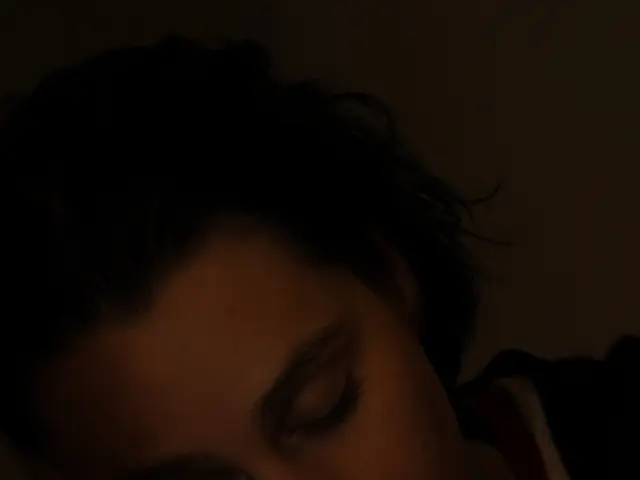Septal deviation: Causes, signs, and remedies
A Deviated Septum Simplified:
A deviated septum is an off-center division of the nasal wall, commonly affecting 8 out of 10 Americans. This oddball structure can cause quite the ruckus, interfering with your airflow and overall nose health.
When your septum veers too far to one side, it throws off the balance in your nasal passages, causing one to be larger than the other. The more imbalanced, the more troublesome the symptoms.
The Root of the Issue
Most cases are simply the result of genetics (suck it, family genes!), but injuries, particularly those during childbirth or later in life, can also twist your septum out of shape.
In some cases, a deviated septum starts as early as in the womb, developing under the radar until birth, or it can be a post-birth injury caused by a forceful delivery. Surprisingly, incidences of trauma in infants are less frequent compared to kids and adults.
Deviations from birth tend to have a smooth, S or C shape, usually affecting the front part of the nose, and may worsen with aging. Post-birth injuries, on the other hand, result in irregular, extreme angles that impact all areas of the septum, including fractured cartilage.
Symptoms to Watch Out For
Here's where the annoyances kick in:
- Difficulty breathing, especially through one side
- Persistent sinus issues or inflammation
- Frequent nosebleeds
- A dry, irritated nose
- Noisy breathing during sleep
- Facial pain
- Postnasal drip
- Headaches
- Snoring
- Whistling sounds while inhaling or exhaling
- Sleeping on one side, favoring the more open nostril
- In severe cases, sleep apnea
Even if it's only a pain during a cold or flu, it's best to keep an eye on things, just in case.
When to Instead of Freak Out
When breathing becomes labored, or you experience dizziness or confusion, it's time to consult a professional. They'll take a good look using a special tool and maybe, just maybe, quote you a few humungous words you'll barely understand. But hey, better safe than sorry, right?
In cases of infants, severe deviations can be more impactful due to their smaller nasal passages. If neglectful, these complications could lead to serious problems, so bubble wrap 'em up until they grow some more!
When to Let the Dr. Fix It
Most cases of deviated septum require minimal intervention, looking after themselves as the individual grows. But when breathing becomes a challenge, your doctor might suggest arraying a collection of treatments:
- Steroid nasal sprays to soothe inflammation
- Nasal dilators, aka snoozing space-makers
- Decongestants to unclog the junk
- Saline washes to rinse things out nicely
- Antihistamines to fend off allergy bullies
Lastly, steer clear of irritants that'll make your symptoms worse. Cigarette smoke is the ultimate foe here, so try to stay away from it – and any other indoor pollutants too!
Sources:[1] Buch, T. J., Agarwal, A., & Risdon, R. C. (1991). Pediatric Septoplasty. Otolaryngology–Head and Neck Surgery, 104(5), 736–740. https://doi.org/10.1016/0194-5998(91)90382-W[2] Djaïdj, M., Jaïd, S., Mouizer, S., Soualah, N., & Triki, J. (2019). Nasal obstruction in newborns: pathophysiology, diagnosis and treatment. Mediterranean Journal of Pediatrics, 3(1), 3–10. https://doi.org/10.5812/mjpediatrics.76363[3] McGuire, M. P., & Silverstein, M. D. (2010). Functional endoscopic evaluation of the nasal septum and midturbinate in healthy adults. otolaryngology-head and neck surgery, 143(5), S23–S31. https://doi.org/10.1016/j.otohns.2010.03.036
- A public service announcement (psa) about deviated septums might highlight the common occurrence among 8 out of 10 Americans.
- Ads for various health-and-wellness products could mention relief from symptoms associated with deviated septums, such as difficulty breathing or persistent sinus issues.
- Some workplace wellness programs might offer screenings for medical conditions like deviated septums as part of their preventative healthcare initiatives.
- In radio PSAs for a medical clinic, snoring may be listed as a potential symptom of a deviated septum.
- A Q&A segment on a science show could discuss the anatomy of the nose and how a deviated septum affects airflow.
- An article on sleep might discuss the impact of a deviated septum on sleep quality, mentioning sleep apnea as a possible complication.
- A segment on a show about chronic diseases could touch on deviated septums as a common medical condition that affects many people.
- A cancer awareness campaign could mention respiratory conditions like those caused by a deviated septum as a risk factor for throat and lung cancer.
- A discussion on digestive health might touch on the relationship between nasal health and overall digestion, as some deviated septum symptoms can affect the swallowing process.
- An eye health segment on a news program could mention that deviated septums can cause dry, irritated eyes due to nasal discharge.
- A feature on hearing loss might discuss how nose issues like those caused by a deviated septum can affect one's ability to hear.
- A fitness and exercise routine could include techniques for nasal breathing to help people with deviated septums improve their airflow during workouts.
- An article on sexual health might discuss how certain medications used to treat deviated septums can have side effects that affect libido.
- A segment on autoimmune disorders could touch on the potential link between deviated septums and conditions like rheumatoid arthritis.
- A discussion on mental health might mention how chronic nasal problems like those caused by a deviated septum can impact a person's mood and overall well-being.
- A men's health article could discuss common nasal issues faced by men, including deviated septums.
- A piece on skin care could mention that certain therapies and treatments for deviated septums, such as steroid nasal sprays, can have side effects like dry skin or thinning of the skin around the nostrils.








